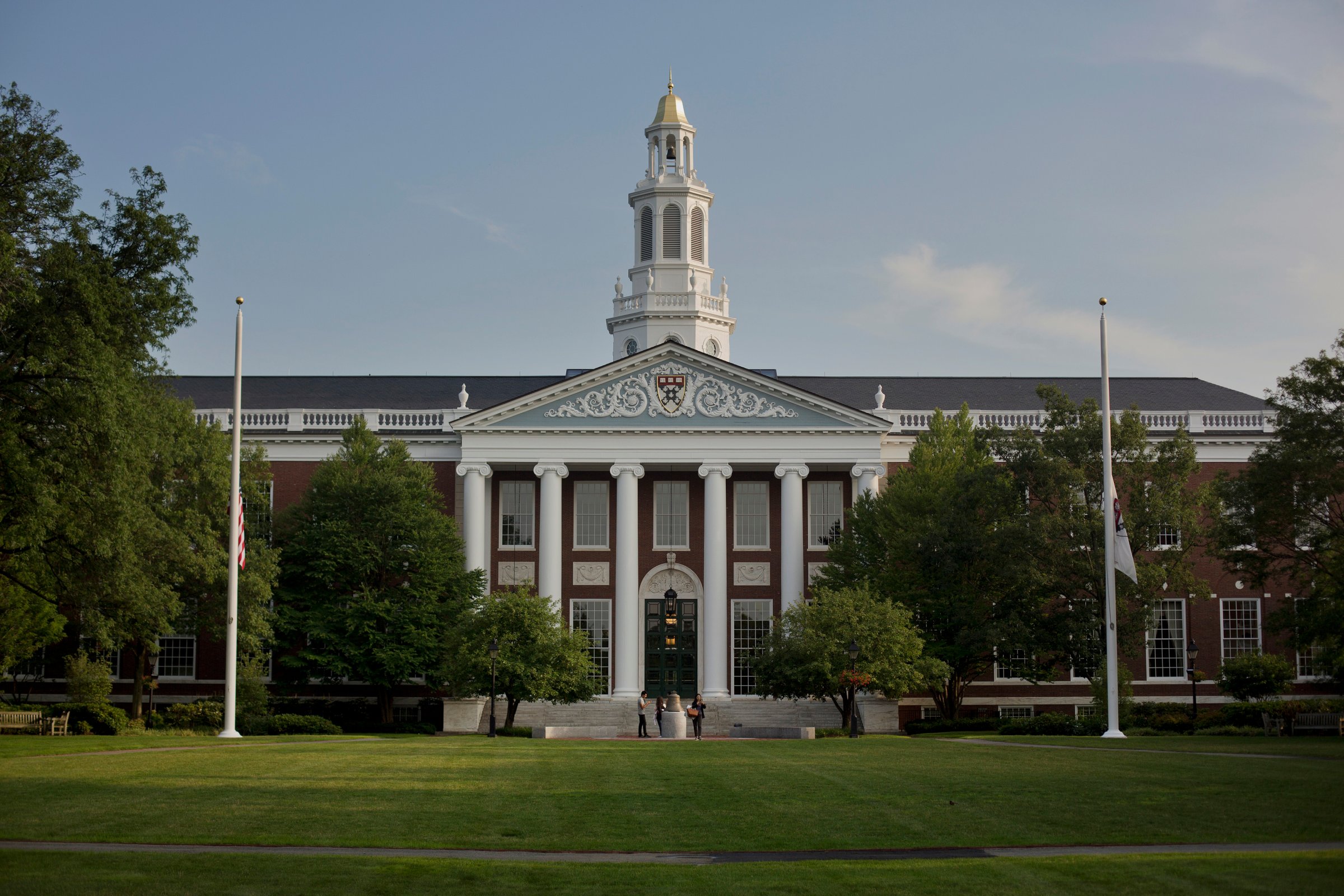
I went to a public high school in the Florida Keys and only got into two colleges: The University of Florida and Georgia Tech. I picked Georgia Tech for my undergraduate degree. It’s a good engineering school but not celebrated on the level that some other schools are.
So throughout my 20s, when I met people who went to Harvard or Brown, I felt intimidated—like I must not be on their level. Then, when I was 28, I applied to Harvard’s business school. I had managed 120 people at a Snickers manufacturing plant in Waco, Texas, and spent three years as the director of operations at Citysearch. But I still couldn’t believe I got in. I chalked it up to luck, figuring the sun shines on a dog’s backside every now and then.
When I got to Harvard, I was intimidated by all of the other students, who I assumed were better and smarter than me because most of them had gone to better colleges. Then, I got to know these people and sat in class with them for six hours a day. I realized that, while they were certainly smart, they weren’t automatically smarter than me—and their ideas weren’t necessarily any better than mine.
I graduated having finally found the confidence to think I could go out and compete—that my ideas were just as worthy as anyone else’s. That was a huge realization. It was a $100,000 education in being confident. I wish I’d had that confidence in my 20s, but I graduated at 31 years old and was finally going out into the world saying, “OK, this time I can do it.”
Since then, I’ve seen the importance of confidence come up again and again: It’s not the smartest people who go the furthest, it’s the people with the most confidence.
It’s this mentality that’s really helped me build my company from the ground up. I went in truly believing that consumers would be interested in an exercise bike that let them stream high-quality indoor-cycling classes they could take from home. And now, because I’ve surrounded myself with a smart, scrappy team and instilled the confidence I have in this idea in others, we’ve sold thousands bikes and counting.
John Foley is the CEO and founder of Peloton, the exercise bike that streams indoor-cycling classes to your home live and on-demand.
More Must-Reads from TIME
- Donald Trump Is TIME's 2024 Person of the Year
- Why We Chose Trump as Person of the Year
- Is Intermittent Fasting Good or Bad for You?
- The 100 Must-Read Books of 2024
- The 20 Best Christmas TV Episodes
- Column: If Optimism Feels Ridiculous Now, Try Hope
- The Future of Climate Action Is Trade Policy
- Merle Bombardieri Is Helping People Make the Baby Decision
Contact us at letters@time.com